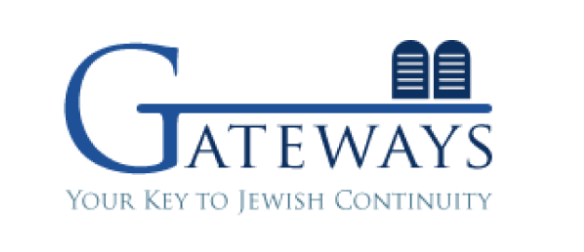Posted on Thu, Nov. 08, 2007
Agencies freeze credit reports to protect identities, curb theft
Last-ditch action offers new security
By Jan J. Kim
The Wall Street Journal
Spooked by the possibility of identity theft, increasing numbers of people are taking a radical approach to thwart criminals: They are putting their credit reports on permanent freeze.
A frozen credit report prevents almost anyone from using your name to take out a loan or sign up for credit, such as a credit card, a bank account or cell phone service. That is because, with a freeze in place, potential new creditors can't get access to your credit record kept on file by the three main credit-reporting bureaus without your explicit permission.
Michael Dana, a Dallas police detective, chose to freeze his credit reports after a Texas law took effect last month that made freezes available to all residents. Dana says he received several notices from financial institutions and the government saying that some of his personal information may have been compromised. "You can try to shred all your documents," says the 42-year-old. But "I'd rather shut my credit down and have the best security in place and not be a victim at all."
An estimated 50,000 to 70,000 people have so far signed up for credit freezes, according to the Consumer Data Industry Association, a trade group that includes the three credit bureaus.
Consumer groups expect that number will grow after the bureaus - Experian Group Ltd., TransUnion LLC and Equifax Inc. - recently announced plans to offer credit freezes nationwide by next month. The action comes after 39 states and the District of Columbia enacted laws in recent years allowing consumers to freeze their credit, though some states limit the option only to identity-theft victims.
Florida enacted a credit-freeze law last year, and Jimmy Glass and his wife signed up the same day. "Just the thought of someone else being able to assume your identity and rack up thousands of dollars in your name - that's just unthinkable," says Glass, of Orlando. "I have all the credit cards I need, no mortgage and no need for any car loans, so I just decided to shut it down."
Sometimes a brush with identity theft prompts people to take action. Dave Schreima of Long Beach, Calif., says someone recently got a hold of his bank-account number and started making unauthorized withdrawals. "I had already decided to freeze my records. That just kind of prompted me that this is the time to do it," says the 49-year-old retired computer programmer.
"New account fraud is more serious than people hijacking your current accounts because you can go for a very long time and not realize that there's an account in your name at a store you never shop in," says Claudia Bourne-Farrell, a spokeswoman at the Federal Trade Commission.
Freezing your credit can be cumbersome. You generally have to write a letter to each of the credit bureaus and pay a fee of about $10 to each. Although you can temporarily suspend the freeze, doing so could take several days and, in many cases, means paying more fees.
When your file is frozen, the bureaus assign you a personal identification number, which you will need to remove the freeze. To lift the freeze, you must notify the bureaus and specify the amount of time you want the lift in effect. With a fee of $10 per bureau in many states, it can cost a married couple as much as $60 to initiate a freeze across all three bureaus and another $60 to lift the freeze. Freezes are typically free for people who provide a police report confirming they were victims of identity theft.
The credit bureaus are generally promising to lift a credit freeze within three business days of receiving the request. But some states are forcing them to go further. Beginning next year, Utah and the District of Columbia, for instance, will require the bureaus to lift the freezes for state residents within 15 minutes. Keep in mind that even if you don't plan to borrow money, you may need to suspend a credit freeze to get an insurance policy, cell phone or utility service, an apartment or even a job.
Some states also are requiring the credit bureaus to charge lower fees in their states. As of last month, Indiana residents can request, lift or remove a freeze for free, while consumers in other places, such as Nebraska and Delaware, pay only a one-time fee to place the freeze with no additional costs to remove the freeze. Some states, including New York, New Jersey and Montana, require that bureaus charge fees of $5 or less.
Consumers can get more information on states' credit-freeze laws, along with general guidelines on how to place a freeze, at www.financial privacynow.org, a site run by Consumers Union.
The strategy isn't a total answer to identity theft: for example, a freeze won't stop someone from stealing your existing credit-card numbers and using them fraudulently. A freeze also doesn't prevent existing creditors and certain government or state and local agencies from accessing your credit files.
Identity-theft experts say that freezes are often best-suited for people who have little need to apply for new credit, such as children or for elderly parents, or for those who have already paid off their mortgages, car loans and credit cards. Even with a freeze in place, consumers can still order their own credit report. A freeze also doesn't lower an individual's credit scores.
Credit bureaus say there are less-cumbersome ways to prevent financial-identity theft. "File freezing is really the extreme measure," says Rod Griffin, Experian's manager of public education. "It can be the right thing for a person who has an extreme issue with identity theft, but if you freeze your credit file, you're removing yourself from the credit marketplace."
Soon, every American consumer will be able to place a freeze on their credit file, due to announced policy changes at three national credit repositories, (Equifax, Experian, and Trans Union). Before this policy change, only consumers in the 39 states where laws had been passed could freeze their credit. Probably sensing pending Federal legislation, the slow big 3 decided (individually, of course - wink wink) that the self-governing thing to do would be to proactively offer credit freezes to everyone not currently covered by a state law. So end of story, right?
The article above barely skims over the "other side of the story". A credit freeze is indeed an effective tool to stop identity theft when the perpetrator is using the PII "personal identifying information" of an innocent consumer for the purpose of opening new credit or charge accounts in order to purchase goods or services. Recent statistics show that credit card fraud is merely 28% of all identity theft related claims. Another 19% of the reported fraud is related to telephone and utility accounts while 18% is bank fraud and 13% employment fraud (which is only KNOWN employment fraud).

Credit freezes prevent a credit report from being accessed for the purpose of a new credit application. As pointed out in the article, a freeze will not stop an existing tradeline on the credit report from pulling follow up credit reports. But what about the records that appear in commonly used non-credit data sources such as Lexis-Nexis or Choicepoint? What if a perpetrator uses a victim's PII with an entity that merely verifies personal information using a non-credit data source?
The fact is that utilities (including cable and satellite television)
rarely if ever order credit reports before turning on service and cellular telephone services do not use credit reports nearly often enough before establishing new service. Where the article did not even venture in to is employment related identity theft. Many smaller employers, if not most, never run a credit report anymore. Most background checks for employment are based upon criminal searches, motor vehicle reports and locater searches. Here again, the credit freeze will not help prevent fraud.
I would not advise to a concerned consumer who has not experienced identity theft to forget about the freeze altogether since it would be effective in preventing SOME forms of identity related fraud. But, just because a consumer places a credit freeze on their credit file with each of the national credit repositories, it doesn't mean they are safe from fraud. Consumer's should still take protective steps to safeguard their PII. Losing sleep over the possibility of identity theft is not worth the effort. If it happens, it happens. But if you do lose sleep thinking about identity theft, the credit freeze will only save you a few winks.
























































0 comments:
Post a Comment